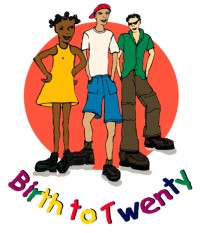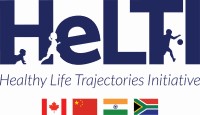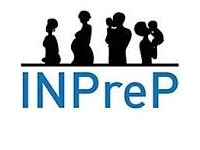Strategic research resources
Birth to Twenty Plus Cohort
South Africa’s longest running and only intergenerational cohort
 The Birth to Twenty Plus cohort (Bt20+) is South Africa’s longest existing longitudinal study and it has been a strategic resource of DPHRU since our inception.
The Birth to Twenty Plus cohort (Bt20+) is South Africa’s longest existing longitudinal study and it has been a strategic resource of DPHRU since our inception.
The original cohort included 3273 mothers and their children who were enrolled in 1990 in Soweto-Johannesburg and who have been followed up for close to three decades. The Bt20+ cohort now has three generations enrolled, across all the stages of development and intergenerationally. In 2019, the Generation 2 (2G) cohort participants are 29 years of age and nearly 60% are still in contact with the study. The latest wave of data collection at age 29 years has just been completed and focused on transitions to adulthood (education; livelihoods; cognitive function) and how early life factors (development) affect these outcomes. Generation 1 mothers (1G) gave birth to Generation 2 (2G) in 1990. Information on 1G women and their 2G offspring has been obtained prospectively on 24 repeated occasions. The 2G cohort have begun to have their own children (Generation 3; 3G). We have been enrolling the 3G cohort into a study investigating the effect of exposures over two generations on infant biological outcomes assessed in the third generation.
The exciting opportunity that the Bt20+ resource provides is that DPHRU researchers and our collaborators have the opportunity to examine the impact of personal, social and family history on child, adolescent and adult health and wellbeing across generations. This is a unique feature in the South Africa research arena and will continue to remain a cornerstone of the DPHRU research agenda in coming years.



 In moving towards increasing our attention on interventions, we have secured a second strategic resource, a 10-year new flagship project The Healthy Life Trajectories Initiative (HeLTI) study supported by the World Health Organisation. HeLTI is unique in that it is the first large-scale preconception cohort in sub-Saharan Africa, and is a multi-country trial with harmonised sites in South Africa, India, China and Canada, thus significantly increasing DPHRU international standing and recognition. HeLTI is directly linked to the core mandate of DPHRU in that it focuses centrally on maternal and child health, and nutrition, from preconception through to five years of age.
In moving towards increasing our attention on interventions, we have secured a second strategic resource, a 10-year new flagship project The Healthy Life Trajectories Initiative (HeLTI) study supported by the World Health Organisation. HeLTI is unique in that it is the first large-scale preconception cohort in sub-Saharan Africa, and is a multi-country trial with harmonised sites in South Africa, India, China and Canada, thus significantly increasing DPHRU international standing and recognition. HeLTI is directly linked to the core mandate of DPHRU in that it focuses centrally on maternal and child health, and nutrition, from preconception through to five years of age. We have a third strategic resource which amplifies our focus on the first 1000 days of life and helps us to engage more widely on the importance of the developmental origins of health and disease by establishing the Improved Nutrition Preconception Pregnancy Post-Delivery (INPreP) network.
We have a third strategic resource which amplifies our focus on the first 1000 days of life and helps us to engage more widely on the importance of the developmental origins of health and disease by establishing the Improved Nutrition Preconception Pregnancy Post-Delivery (INPreP) network. The fourth strategic resource is that DPHRU is a member of a ten-site network (six African countries and 4 sites in India). The Transforming Adolescent Lives through Nutrition (TALENT) network brings research platforms together to fill large knowledge gaps about the dietary behaviour, food security, nutritional status and physical activity of adolescents in LMICs, and the factors that influence these and how they change through the course of adolescence. We will use this new knowledge and understanding to develop and assess context-specific interventions to improve adolescent nutrition, engaging with adolescents themselves, their communities, and policy-makers to ensure impact and scalability. We will also build within-country capacity for quantitative and qualitative nutrition research and intervention development in the adolescent age group.
The fourth strategic resource is that DPHRU is a member of a ten-site network (six African countries and 4 sites in India). The Transforming Adolescent Lives through Nutrition (TALENT) network brings research platforms together to fill large knowledge gaps about the dietary behaviour, food security, nutritional status and physical activity of adolescents in LMICs, and the factors that influence these and how they change through the course of adolescence. We will use this new knowledge and understanding to develop and assess context-specific interventions to improve adolescent nutrition, engaging with adolescents themselves, their communities, and policy-makers to ensure impact and scalability. We will also build within-country capacity for quantitative and qualitative nutrition research and intervention development in the adolescent age group.